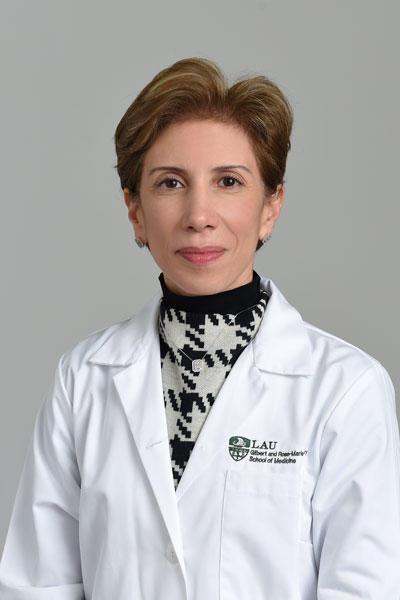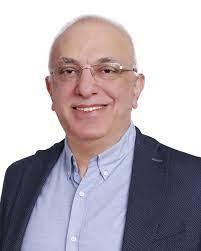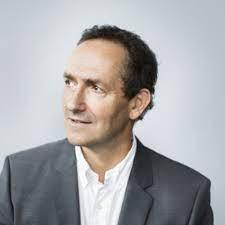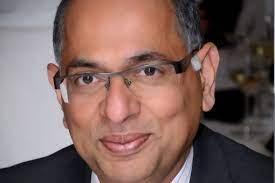Speakers and Abstracts
(Speakers are listed in the order of the programs’ sessions)Lecture 1: Psychology and Physiology of Wellbeing

Myriam El Khoury Malhame, PhD
Dr. El Khoury-Malhame is an Assistant Professor of Psychology in the Department of Social and Education Sciences at the Lebanese American University.
She strongly advocates the bi-directional connections between biology and psychology with a special focus on neurosciences as the brain remains the most vital yet understudied organ in psychology. The bio-psycho-social model shapes personality and influences physical and mental health as well as illness. She has combined both approaches in her trainings as a clinical psychologist and a cognitive neuroscientist.
She worked for her doctoral studies under the supervision of David Servan-Schreiber and Stephanie Khalfa, examining the cortico-limbic, physiological and clinical markers of PTSD and explored how EMDR psychotherapy improves PTSD symptoms by restoring brain structure and function.
Abstract
The theme for the mental health day on October 10th this year as set by the WHO is to “Make mental health and wellbeing for all a global priority”. This theme clearly reflects the alarming scientific data on 2 major fronts: 1. the rapid systematic decrease in wellbeing worldwide as exacerbated by ongoing accumulating adversities and 2. the evidence for an intricate bidirectional relationship between wellbeing one hand and the psychological and psychological health on the other. Beyond the mere absence of illness or burnout, what exactly is wellbeing? Why has it become a trendy umbrella term? How does it interplay with mental and physical health and mostly how do we prioritize it at work and in society?
Lecture 2: Neuroscience and Biology of Mindfulness

Jocelyne Azar, MD, MHM, MHPE
Dr. Azar is a Clinical Assistant Professor at the LAU School of Medicine in the Division of Psychiatry/Department of Internal Medicine. She is the Head of the Division of Psychiatry at the LAU Medical Center-Rizk Hospital. Dr. Azar is actively involved in the academic development of students and residents as the residency program director and core clerkship director.
Dr. Azar graduated with an MD and completed her residency training in psychiatry at the Saint Joseph University Faculty of Medicine. She has a University Diploma in Eating Disorders from St. Joseph University/Rene Descartes, Paris V. A Diploma in Forensic Medicine from St. Joseph University/Universite de Rouen, France. And, a Diploma in Cognitive Behavioral Therapy from St. Joseph University/Rene Descartes, Paris V.
Dr. Azar then pursued a Masters degree in Health and Hospital Management at the Ecole Superieure des Affaires in Lebanon. She also completed a Masters in Health Professions Education (FAIMER Distance Learning) at Keele University in the UK.
Abstract
Mindfulness meditation has received attention in neuroscience research over the past two decades. Behavioral studies suggest that mindfulness mediation provides beneficial effects on a number of cognitive domains, including attention, memory, executive function, and cognitive flexibility. In addition, these effects have been found in multiple brain regions, including the cerebral cortex, subcortical grey and white matter, brain stem and cerebellum. Studies showed consistent difference between meditators and non- meditators, including areas key to meta-awareness (prefrontal cortex), exteroceptive and interoceptive body awareness (sensory cortices and insula), memory (hippocampus), and emotional regulation (anterior cingulate and orbitofrontal cortex).
Lecture 3: Mindfulness, Emotions and Wellbeing

Nadine Zakaria, BA
Mrs. Zakaria is an Art Therapist at the Hospital of the Cross since 2006. She holds a degree in Interior Architecture and is a Mindfulness-Based Cognitive Therapist as well as an arts Instructor.
Abstract
Emotions influence how we live and interact with ourselves and with others. At times, it may seem like these emotions rule us. The choices we make, the actions we take, and the perceptions we have are all influenced by the emotions we are experiencing at any given moment.
There is a crucial yet subtle difference between being the emotion, letting it overtake our identity at the moment, and noticing it merely arising inside us.
Knowing that we are not what we feel, as distressing as it may be, we can stop trying to avoid pain by embracing it as temporary without fighting it.
When a person tends to become mired in emotional states, being mindful will help notice that.
Emotions visit for a while, usually a short time, and then evaporate. They need thoughts to fuel them, especially tough ones. Staying in this awareness of focusing on experiencing the body sensations, instead of trying to alter it if it feels negative, and sustain it if it feels pleasant, is what mindfulness is all about. Experiencing this unconditional presence, no matter what the present mental state, is always in reach.
Practicing mindfulness can train our minds to be less affected by the mind’s current state and tune into its vivid awareness. You can “get off the ride” and watch the emotion unfold without trying to change it.
Lecture 4: Mindfulness in Society

Daoud Matta, MA
Mr. Matta holds an MA in Mindfulness-Based Approaches (MBSR and MBCT) from Bangor University of North Wales in the United Kingdom.
He received his diploma in “Cognitive Behavioral Therapy” from the Association Libanaise des Therapies Cognitive et Comportementales (ALTCC). And, a diploma in “Mindfulness at Work” from Oxford Mindfulness Center.
Mr. Matta is a lecturer at the American University in Beirut and at the St. Joseph University Faculty of Business Administration and Management. He is also a Mindfulness teacher in various organizations. Additionally, he taught Mindfulness at the St. Joseph University for college students and Mindful Leadership for Masters students at Lebanese American University. Also, he taught faculty and staff at USJ as part of Centre de Formation Professional at USJ.
Abstract
Evidence-based research points to the positive effects of practicing mindfulness on an individual level. Besides alleviating a host of mental issues, mindfulness also contributes to more harmonious relationships with others.
Social mindfulness is the nascent field exploring mindfulness’s effects on our interaction with others. In this session, we go beyond social mindfulness to explore the potential of mindfulness in helping emerge other benefits that could ensue from the collective practice. Can mindfulness, which induces well-being and better relationships with others, catalyze societal transformation and active engagement to tackle social, environmental, and economic sustainability problems more effectively?
Lecture 5: Mindfulness at Work: It’s Not What You Think!

Michael Chaskalson, BA(Hons), MA
As well as being a highly experienced teacher of mindfulness, Michael is a pioneer in its application to leadership and other workplace contexts. He is the author of the agenda-setting book The Mindful Workplace (Wiley, 2011) and the bestselling Mindfulness in Eight Weeks (Harper Thorsons, 2014), and has co-authored Mindfulness for Coaches (Routledge, 2017) and Mind Time (Harper Thorsons, 2018).
Michael has also been a successful social entrepreneur, founding a fair trade company that came to have annual sales of £10 million and 200 employees. He is founder and CEO of Mindfulness Works and a Professor of Practice, adjunct at Ashridge Executive Education.
Abstract
Although the evidence for the benefits of mindfulness training and practice for individuals is clear today, there is much less evidence of positive change when mindfulness is taught to workplace groups. Partly, that is because studies are rare and less rigorous than in clinical contexts, and perhaps because the uptake of actual mindfulness practice by individuals during and following any training may be more slight. It is also morally questionable to treat mindfulness as a panacea in organizational systems where people are regularly overworked or when there is bullying and a loss of individual autonomy. Team mindfulness might help. Here, people at work learn to bring mindful attention to their teams. The team itself becomes the focus of attention – its goals, tasks and processes, and also its inner weather – the team’s ever changing internal dynamics. What exactly is team mindfulness? How does it differ from individual mindfulness? All of that will be discussed.
Lecture 6: Enhanced Stress Resilience Program (ESRT) for Students and Doctors

Carter Lebares, MD, FACS
Dr. Lebares is an Associate Professor of Surgery at UCSF and Director of the UCSF Center for Mindfulness in Surgery. She is a clinically active MIS and Acute Care surgeon. She received her MD from the University of Minnesota, completed surgical residency at UCSF, and did fellowship training at The IRCAD Institute, Strasbourg University, France.
Her academic research focuses on stress and performance in surgeons, factors that influence healthcare provider well-being, and the development of evidence-based policy and interventions to promote thriving in medicine. She created the mindfulness-based intervention called Enhanced Stress Resilience Training (ESRT), is an associate member of the American College of Surgeons Academy of Master Surgeon Educators, and the Committee on Surgeon Wellbeing.
Abstract
Tailored MBIs have proven beneficial in multiple high-stress and high- performance populations. In surgeons, tailored MBIs have been shown to be feasible and beneficial to individual wellbeing, resident education, team performance, and patient experience. ESRT is a streamlined, mindfulness-based intervention derived from Jon Kabat Zinn’s MBSR and initially developed for surgeons by Dr. Carter Lebares, FACS, a gastrointestinal and emergency surgeon at UCSF and Director of the UCSF Center for Mindfulness in Surgery.
Lecture 7: Building Resilience in the Medical Environment

Umakant Dave, MBE, MD, DNB (Gastro), PGCE, FRCP, FAcadMEd
Dr. Dave is a consultant Gastroenterology Physician in Swansea in the UK and an Honorary Senior Lecturer at Swansea University. His clinical work includes complex endoscopic surgery (bowel cancer, ERCP, GI stenting). He was involved in a charity set up to train doctors in Bangladesh since 2013 & has received multiple awards for his work. Having trained in India and then in the UK, Dr. Dave brings the perspective of the joys and challenges of migration.
Dr. Dave leads reflective learning and professionalism in Swansea University Medical School. He is particularly passionate about the training and well-being of doctors and other healthcare workers. He has completed level 1 and 2 Mindfulness teacher training retreats at Bangor University. He established a group, from staff working in Swansea Bay Heath Board, who are interested in improving staff wellbeing. He has been teaching mindfulness in Swansea Medical School (2016 onwards) and has run many mindfulness and wellbeing study days sessions for healthcare workers. He was invited to run a session on mindfulness by the Association of Anesthetists of GB and Ireland.
Moreover, Dr. Dave ran a weekly well-being session for all healthcare staff during the early part of the pandemic. His “Well-being” work was recognized by the Royal College of Physicians (2020). He is the sole trainer for the BMA-sponsored ESRT randomized controlled trial for medical students. He wrote a number of articles in medical journals about well-being and resilience.
The UK government recognized his work, and he was awarded MBE in the Queen’s jubilee celebration (2022).
Abstract
Work-related stress is becoming an increasingly recognized occupational hazard that can have detrimental effects on the health of both patient and doctor. The practice of gastroenterology not only includes the demands of clinics and in-patient work faced by other medical specialties but also the additional burden of complex, and often high-risk, endoscopic interventions. Mindfulness, a secular form of meditation, can relieve stress, even if only practiced for a few minutes a day.
Methods and Results: We present a personal perspective of the burnout experienced in stressful gastroenterology careers and the personal use of mindfulness in the daily routine to provide a source of calm when surrounded by many different pressures. We review some of the literature exploring the role of mindfulness in clinical practice with an emphasis on gastroenterology. While the practice of mindfulness is not designed to obviate immediacy and quick decisions in a rapidly changing clinical environment, it has been held widely useful to mitigate the stress involved in making those decisions.
Conclusion: Practicing mindfulness, meditation and mindful living offers many advantages to gastroenterologists’ wellbeing as well improved patient care. We advocate its teaching to both gastroenterology trainees and consultants who are not familiar with the technique.
Lecture 8: Mindfulness and Play Therapy

Waad Chartouni Bsaibes, MA
Mrs. Chartouni Bsaibes is a Clinical Psychologist & Psychotherapist at the Psychiatric Hospital of the Cross. She is a PhD Candidate in Clinical Psychology. She is also a MBCT Certified Instructor.
Abstract
When children respond to the play therapy, through their play themes, they face their deepest feelings, and release what is holding them back in their growth and development. They become better able to express feelings appropriately. They heal.
We explore mindfulness and its relationship with play therapy applied to children and adolescents. Then we will elaborate on the potential to extend it to adults.